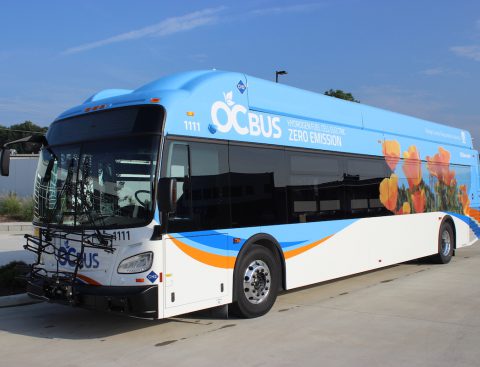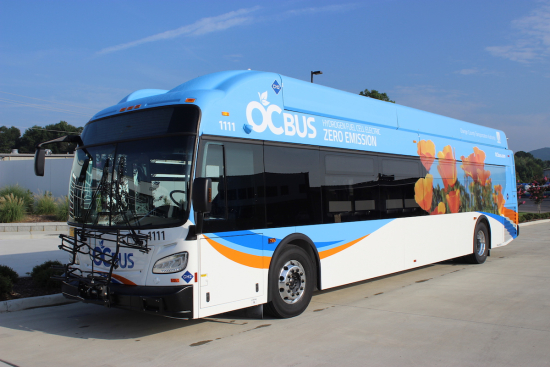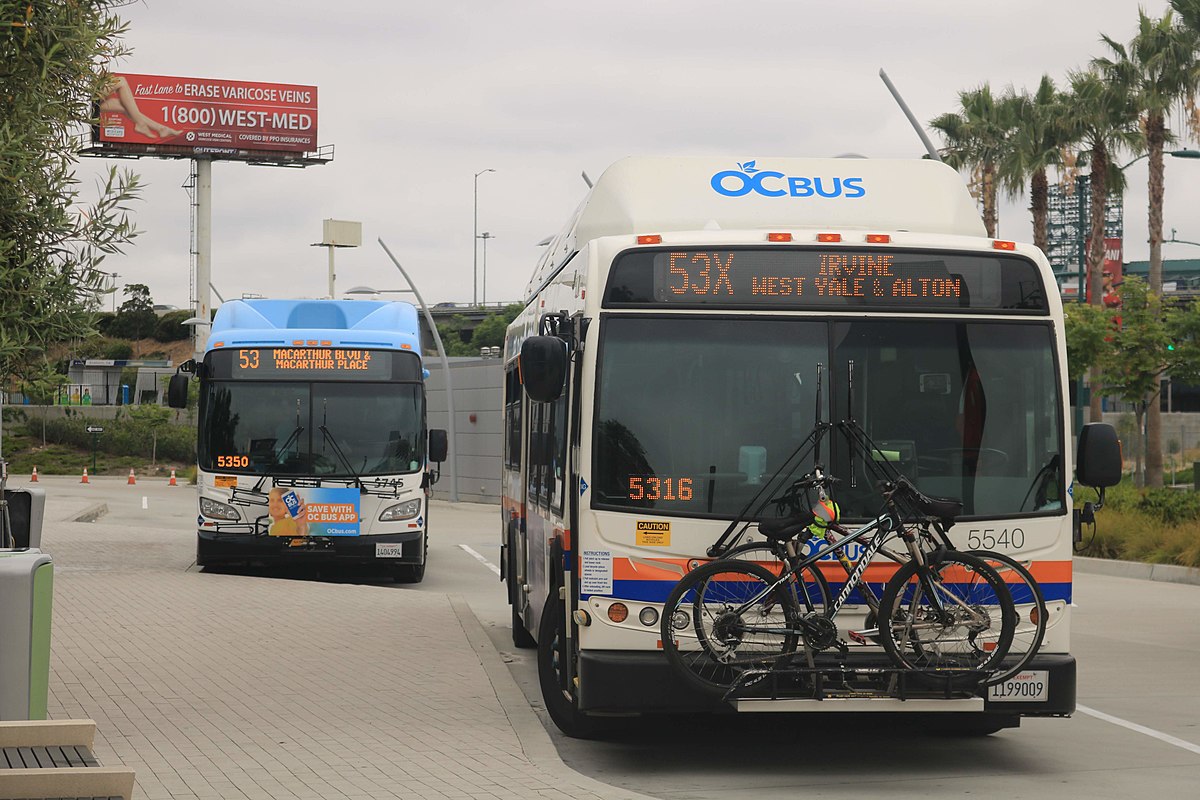California, Orange County bus fleet will be full electric by 2040
Orange County bus fleet will be full electric by 2040, in line with the state requirements and following the draft plan approved by the Orange County Transportation Authority’s Board of Directors. The document, that will now be submitted to the California Air Resources Board, outlines how the agency will convert the OC Bus fleet to […]

Orange County bus fleet will be full electric by 2040, in line with the state requirements and following the draft plan approved by the Orange County Transportation Authority’s Board of Directors. The document, that will now be submitted to the California Air Resources Board, outlines how the agency will convert the OC Bus fleet to 100 percent zero-emission technology in 20 years time.
OCTA is currently testing hydrogen fuel-cell electric (ten units delivered in early 2020) and plug-in battery-electric technologies in two pilot programs. In April, OCTA Board of Directors approved a request for quotes to purchase 10 plug-in battery-electric buses.

California transitioning to zero emission transit within 20 years
OCTA has already gradually transitioned its fleet over the years, from diesel-burning buses to clean-burning renewable compressed natural gas (CNG) buses with near-zero-emission engines, the agency points out. The state of California has set a requirement to transition to complete zero-emission transit within the next 20 years.
Approved in late 2019, CARB requires public transit agencies throughout the state to commit to buying only zero-emission buses (battery electric or fuel cell) starting in 2029. A move that makes particularly sense, given the fact that California is the US leader in electricity generation from non-hydroelectric renewable energy source(geothermal, wind, solar).
Orange County transit, both hydrogen and battery in the spotlight
The plan is not a commitment to a specific type of technology at this point, OCTA highlights, at it is in the process of testing both hydrogen fuel-cell electric buses and plug-in battery-electric buses to determine which technology best meets OCTA’s needs related to operations, maintenance and cost, among other things.
The pilot program for the battery-electric 40-foot buses comes following OCTA’s debut at the start of 2020 of 10 new hydrogen fuel-cell electric buses.
Those hydrogen fuel-cell buses, which also create zero emissions, began operating in January, when OCTA debuted its hydrogen fueling station in Santa Ana. In all, it represented a $22.9 million investment. More than half of that funding – $12.5 million – came from California Climate Investments, a statewide initiative that puts billions of cap-and-trade dollars to work reducing greenhouse gas emissions, strengthening the economy and improving public health and the environment – particularly in disadvantaged communities.
Testing both hydrogen fuel-cell and plug-in battery-electric buses will allow OCTA to collect valuable data and to determine which technology – or the best mix of technologies – to pursue moving forward.

OCTA to scale up e-bus procurements in 2023
OCTA operates more than 500 buses in the regular OC Bus system across Orange County. For now, most of those buses run on compressed natural gas but OCTA is working toward the goal of producing zero emissions.
OCTA will begin phasing in the purchase of zero-emission buses as part of future bus procurements beginning in 2023. At the same time, staff will continue to analyze emerging technologies and work with partners to secure funding for purchase, operations and maintenance of the buses.
The effort aligns with California’s Innovative Clean Transit Rule, a first-of-its-kind regulation in the U.S. that sets a goal for public transit agencies to gradually transition to 100 percent zero-emission bus fleets by 2040. The Innovative Clean Transit Rule is part of the state’s comprehensive program helping to achieve California’s air quality and climate goals.
The hydrogen fuel-cell buses continue to be tested on routes throughout Orange County. The plug-in battery-electric buses are expected to begin operation in Orange County in late 2021.
“This is a great opportunity for us to plan for a healthier future that will include both reliable transportation and no potentially harmful emissions into our environment,” said OCTA Chairman Steve Jones, also the Mayor of Garden Grove. “We are accomplishing two important goals at the same time.”







